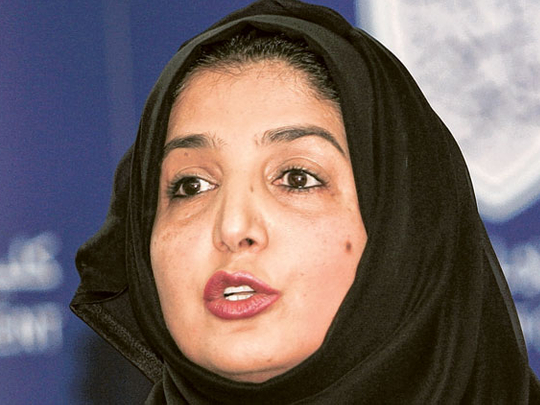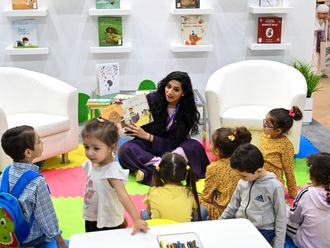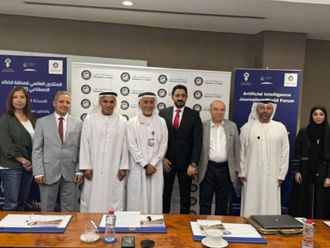
Dubai: Dubai Foundation for Women and Children (DFWC) provides assistance to any abused woman in the UAE regardless of their status in the country, be it legal or illegal, or whether they are involved in relationships out of marriage, a top official has said.
The centre's doors are open to anyone who needs help — whether they are married or not, Afra Al Basti, CEO of the DFWC told an audience during a lecture on Tuesday at the Dubai School of Government on Domestic Violence in the UAE.
Al Basti said victims of abuse were most of the time consumed with guilt and usually blamed themselves for the abuse they endured. She added that the cycle of violence needed to be diminished to avoid further damages to the vulnerable people involved.
Every domestic abuse victim sheltering at DFWC is provided with a support plan which draws a flexible strategy on how the victim can break the cycle of violence and recover, said Al Basti during the lecture.
No reliable study
Ganima Bahri, who is a case worker at DFWC, told Gulf News: "The main question here that it is an abuse case; not whether she is involved in an illegal relationship or not because that it is like judging a victim."
Such cases reported to DFWC are very few, which she says is not necessarily a reflection of the actual situation across the emirates.
"There isn't any scientific and reliable study to determine the tendency of abuse in the UAE to determine whether it is a growing problem or a trend," she said in an earlier interview with Gulf News.
Across the world, on average, it takes at least 30 occurrences of abuse for a victim to report it to authorities, said Bahri.
"Just imagine how long it would take for women in the Arab world, who are governed by cultural stigmas," she added.
Sacred bonds
"Family bonds in the gulf region and the wider Arab world are very sacred. So reporting against the husband is sometimes like reporting against the entire family."
The foundation has experienced cases in which husbands have killed their wives, who endured repeated cycles of abuse, and some of the children affected by this are currently being accommodated by the foundation.
Difficult job
In the first six months of this year, 31 per cent of clients at the DFWC were involved in domestic violence and living under the protection of the foundation.
However, the centre's external clients who are victims of domestic violence accounted for the remaining majority.
Al Basti told her audience that she often felt like leaving. "Sometimes it's too difficult to be surrounded with such intense and complex cases," she said.
"I feel like I want to leave this job, but then I take it one step at a time and I remember that just like every day there might be a bad story, there is also a success story."
Foundation for Women and Children
The Dubai Foundation for Women and Children follows international standards when it comes to catering to domestically abused women.
The women have to go through a screening process based on at least three criteria.
This screening process helps to determine whether the woman is actually a victim of domestic violence.
Following the screening, a case manager has to determine what kind of abuse she has suffered be it physical, emotional, or sexual. The second step includes verifying that the abused women has no place to go to, or that her life is in danger.
Medical report
The third step is to check if she has a medical report or police case to prove her statement, according to Ghanima Bahri, case manager at DFWC.
"If these three criterias are met we never say no to the client," she said.
However, if there is a case where one of the requirements is missing then a decision is taken by a team.
In such cases, the initial course of action is to advise the victim to seek help from their consulates.
Tell-tale signs: Physical injuries
- Inconsistent explanations for injuries
- Stress-related illnesses
- Child abuse
- Isolation from family and friends
- Preventing partner from seeking help, care or support
- Damage to property
- Threatening to take children
- Victim is uptight, shaky, defensive, elusive
Types of abuse (physical)
- Hitting, punching, smacking, etc.
- Threats
- Using fear, destroying objects that are dear
- Emotional/psychological abuse such as infidelity, putting her down, criticising
- Verbal
- Name calling, screaming/yelling, etc
- Sexual violence
Helpline: Call 800 111












